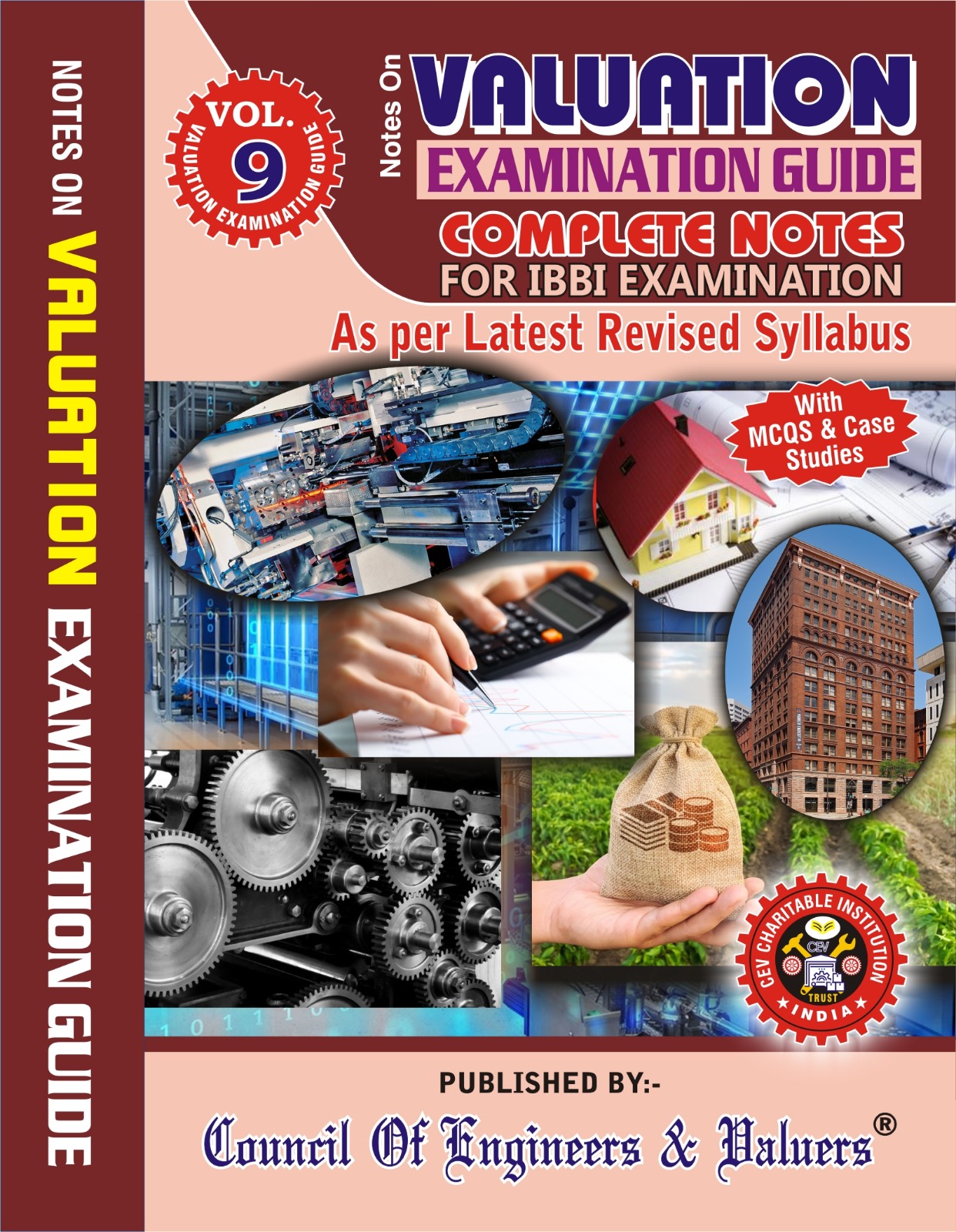Saturday Brain Storming Thought (268) 29/03/2025
PERPETUAL LEASE
A Perpetual Lease is a contract where a property owner grants someone the right to use their land or property indefinitely, in exchange for ongoing rent payments, with no set expiration date and continues until terminated by either party
Indefinite Term
Unlike standard leases with fixed durations, a perpetual lease has no end date, continuing until either the lessor or lessee decides to terminate it
Ongoing Rent
The lessee is obligated to pay rent to the lessor for the duration of the lease, which is indefinitely
Common Use
Perpetual leases are often used for land and buildings where long-term value is expected
Ownership v/s Perpetual Lease
In a Perpetual Lease, the ownership of the property remains with the lessor, while the lessee has the right to use the property
Legal Considerations
While Perpetual leases are recognised in India, the terms and conditions of the lease agreement are crucial, and the language used in the agreement determined the rights and obligations of both parties
Termination
The perpetual lease can be terminated by either the lessor or lessee but the specific conditions for termination should be outlined in the lease agreement
Example of Perpetual Lease
A landowner might grant a perpetual lease to a tenant for a piece of land, with the tenant paying rent indefinitely, and the lease continuing until either party decides to terminate it
Key Characteristics of Perpetual leases
1) Indefinite Duration
A) No fixed end date, allowing tenants to occupy the property indefinitely
B) The lease continues until either party decides to terminate it under agreed upon conditions
2) Automatic Renewal Clauses
A) The lease includes provisions of automatic renewal, eliminating the need of periodic renegotiation
B) Ensures the lease remains active and stable over time
3) Specific Termination Conditions
A) Clearly defined conditions under which either party can terminate lease
B) Often includes a required notice period or specific criteria that must be met to end the lease
4) Rent Adjustment Mechanics
A) Clauses that allow for periodic rent adjustments based on inflation,market conditions or a predetermined schedule
B) Helps ensure that the rent remains fair and reflective of current market values
5) Maintenance and Repairs Responsibilities
A) Specifies the responsibilities of both the tenant and landlord regarding property unkeep
B) Ensure the property remains in good condition throughout the lease term
6) Subleasing and Assignment Terms,
A) Outlines the conditions under which the tenant can sublease or assign the lease up to another party
B) Provides flexibility for tenants to adapt to changing business needs
7) Dispute Resolution Clauses
A) Mechanism such as Arbitration or Mediation to resolve any conflicts that may arise
B) Aims to maintain a smooth landlord – tenant relationship and avoid prolonged legal battles
Key Elements of Perpetual Lease
1) Parties involved
A) Lessor (Landlord) : The individual or entity granting the lease
B) Lessee ( Tenant) : The individual or entity receiving the lease
2) Property Description
A) Location : Precise address and boundaries of the property
B) Schedule : A detailed schedule or map annexed to the deed, outlining the property’s boundaries
3) Perpetual Nature of the Lease
A) Term : Clearly state that the lease is “perpetual” or in “perpetuity”
B) No Fixed End Date : Specify that the lease does not have a fixed end date and continues indefinitely
4) Rent and Payment
A) Annual Rent : Specify the yearly rent amount
B) Payment Schedule : Define how and when the rent is to be paid (i.e monthly, quarterly or annually)
C) Currancy : State the currency in which the rent is to be paid
5) Lessee Obligations
A) Rent Payment : The lessees obligation to pay rent as agreed
B) Taxes and Charges : Specify who is responsible for paying property taxes, rates and other charges
C) Maintenance : Define who is responsible for maintaining the property
D) Compliance with Laws : The lessees obligation to comply with all applicable laws and regulations
6) Lessor’s Rights
A) Right to Re-enter :
Specify circumstances under which the lessor may re-enter the property (eg non payment of rent)
B) Right to determine Lease :
Specify the conditions under which the lessor can determine the lease (eg breach of contract)
7) Interpretation Clauses
Success and Assigns :
Clarify that the lease agreement applies to the legal heirs, executors, administrators and permitted assigns of both the lessor and lessee
8) Termination Clause
A) Conditions of Termination :
Define the conditions under which the lease can be terminated by either party
B) Notice period :
Specify any required notice period for termination
9) Dispute Resolution
Arbitration or Mediation :
Include a clause outlining how disputes will be resolved
10) Governing Laws
Jurisdiction : Specify the jurisdiction whose laws will govern the lease agreement
11) Execution and Witnessing
A) Signatures : Include spaces for both the lessor and lessee to sign the agreement
B) Witnesses : Include spaces for witnesses to sign the agreement
C) Date : Include the date of execution of the agreement
Pros of a Perpetual Lease
1) Financial Benefits
A) No ongoing payments to freeholder : Perpetual leases typically involve a one-time payment for the lease, eliminating ground rent or land fees
B) Easier to Sell or Rent :
Perpetual leases can be easier to sell or rent compared to freehold properties, as the leasehold interest is easily transferable
C) Conversion of Capital :
Perpetual leases can be a way to secure long-term land use without the high initial investment required for freehold ownership
2) Flexibility
A) Tenant Reliability :
Perpetual leases can provide a degree of tenant reliability for the lessor, as the lease term is indefinite
B) No ongoing payments to Freeholder :
This can lead to a cash flow boost for the lessee
Cons of a Perpetual Lease
1) Limited Control
A) Lack of Control over Freeholder :
As a leaseholder, you have limited control over the freeholders actions or decisions regarding the land
B) Consent for alterations :
You may need the freeholders consent for any alterations or improvements to the property
C) Maintenance :
The lease agreement may specify who is responsible for Maintenance and Repairs, which could be a disadvantage for the lessee
2) Financial Commitment
A) Higher Initial investment :
While there are no ongoing payments, the initial cost of acquiring the perpetual lease may be higher than renting or leasing for a shorter period
B) Additional Costs :
There may be additional costs associated with service charges, maintenance or other lease related expenses
3) Other Considerations
A) Expensive Service Charges :
Service charges for common areas or facilities can be a significant expense for leaseholders
B) Property Value :
The value of leasehold property may be lower than a freehold property, especially as the lease term nears its end
Perpetual Lease Vs Freehold Ownership
1) Rights of Ownership
A perpetual lease gives the lessee the right to use Property indefinitely as long as they follow the terms of lease but the lessor still owns the property
Freehold ownership ensures full rights without reliance on a lessor and gives the buyer full and permanent ownership of the property
2) Term
Perpetual leases have no end date they do have terms that the lessee must follow like paying ground rent on time or abiding by usage limitations
Freehold ownership is unrestricted and permanent providing lifetime ownership and the freedom to transfer the property to heirs without incurring additional duties
3) Upfront Price
A perpetual lease usually have a lower initial cost than freehold ownership
Lessee is not buying the property outright
This financial benefit perpetual leases may be a desirable choice for people or companies on a tight budget
Freehold ownership eliminates recurring lease related costs
Freehold ownership offers long-term financial advantages at a higher initial cost
Advantages of Perpetual Lease
1) Cost Efficiency
Perpetual leases frequently have lower upfront costs than outright property purchases
Perpetual leases enable renters to redirect funds to other vital areas like personal investments or business expansion by avoiding the significant capital needed for property ownership
2) Long-Term Security
Tenants benefit from long-term stability and security under perpetual leases
The tenant has an indefinite right to use the property after the terms of lease are fulfilled
This guarantee lowers the possibility of an unexpected eviction or property reclamation enabling tenants to confidently make long-term plans
Businesses can benefit from stable operational bases as a result of this security which promotes expansion and continuity
3) Flexibility in Transfer
The flexibility of perpetual leases about transferability is another alluring aspect of these agreements
Leaseholders frequently have the option subject to the conditions of the lease agreement to assign or transfer their lease rights to another party
This flexibility makes it easier for the leaseholder to adjust to changing conditions like moving or selling their interest for cash and it also opens up investment opportunities
Disadvantages of Perpetual Lease
1) Lack of full ownership
A perpetual leases primary drawback is the lessees limited ability to make significant decisions about the property due to lack of full ownership
Redevelopment projects usually requires the Lessor’s approval which limits the lessees ability to make important structural changes
2) Recurring Obligations
Regular ground rent payments to the lessor and renewal fees which may increase over time due to inflation or market conditions are among the recurring financial obligations that are frequently associated with perpetual leases
These expenses may appear to be manageable thay can mount up over time and put a strain on lessees on a tight budget
3) Conditional Usage
Zoning laws that restrict the use of the property to predetermined categories such as residential, commercial or industrial use are one example of the specific restrictions that are frequently imposed by perpetual lease agreements
In addition to prohibiting specific business operations or activities, they might also impose maintenance requirements on the lessee which would raise operating expenses
Thses restrictions may limit the lessees capacity to modify the property in response to changing market demands or needs which would diminish the propertys overall long-term usefulness
Perpetual Lease Registration charges in Maharashtra
1) Stamp Duty
A) Lease above 99 years or perpetual lease :
7% on the total amount ofcrent, fine, premium or advance, if any, payable
B) Maximum : Rs 20,000.00
2) Registration Fee
A) Lease above 99 years or perpetual lease :
1% on the total amount of rent, fine, premium or advance, if any, payable
B) Maximum : Rs 20,000.00
3) Other Considerations
A) Fine or Premium :
If the lease is granted for a fine or premium, stamp duty is leviable at 5% of the market value of the property or the amount or value of such fine or premium or advance, as set forth in the lease
B) Online Registration :
You can pay the document handling charges for Leave and License 1.9 applications through the payvto IGR portal
C) Document Preperation Costs :
The cost of preparing various lease documents including Perpetual leases is recovered from the lessee or licensee
COMPILED BY:-

Er. Avinash Kulkarni
9822011051
Chartered Engineer, Govt Regd Valuer, IBBI Regd Valuer



